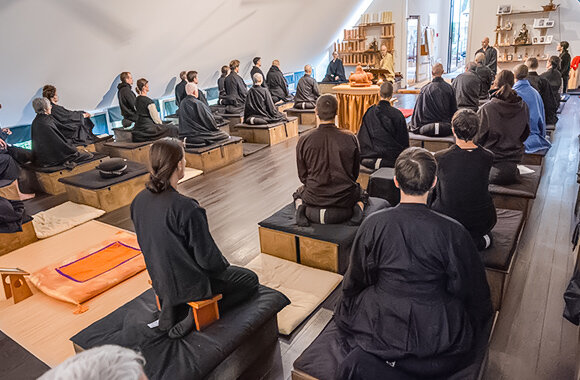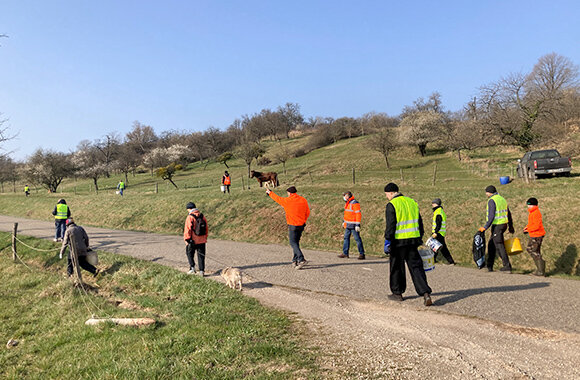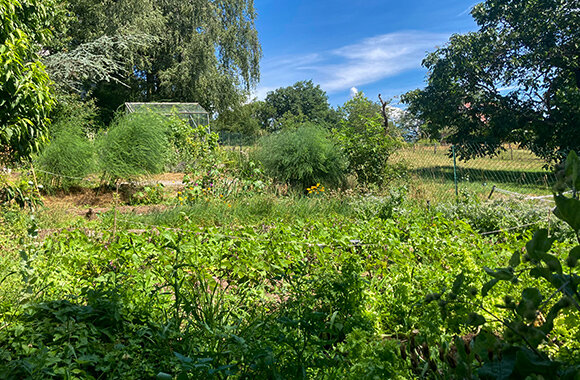Use of Cookies
Our website uses cookies to facilitate and improve your online experience.

Ryumonji was founded in April 1999 by the whole French-German sangha gathered around Reigen Wang-Genh. In addition to the rules of traditional practice in a Soto Zen monastery, we strive to respect certain principles which form the backbone of all our projects.
I would like to summarize them here in five points.
A Zen temple is a place of exemplarity: all those who come to stay for varying lengths of time must be inspired by the example of the elders, both in their practice and in their daily behavior. Thus, paying attention to living beings, animals and plants in particular, not wasting energy, water and food, developing a benevolent attitude towards others and putting oneself above all at the service of others.

A Zen temple is a healthy place: all our projects are part of a permaculture approach, i.e. a global reflection that integrates all aspects: organic garden and culture, medicinal herbs, local purchases, green electricity, building insulation and energy savings, waste recycling, compost and vegetarian and organic food, favoring travel by train.... This reflection also precedes all our purchases and the construction of new buildings.
A Zen temple is an inward-looking place: the meditation hall, the dojo and the Buddhist chapel (Hatto) are open to the general public every day from 9am to 6pm. It is possible to visit the gardens and practice zazen at any time, as well as participate in morning and evening zazen and daily ceremonies. One or two "open days" are organized each year, attended by several hundred people.
A Zen temple is a place open to the outside world: the Ryumonji sangha is very involved in inter-religious dialogue and participates actively in all local and regional initiatives. Every year we organize the Buddha Festival during the Vesak; over two days we welcome nearly a thousand people to present Zen and its practice. We also participate in the initiatives taken by the village of Weiterswiller, for example the Christmas market, the cleaning of the streets, the maintenance of green spaces and a project for a communal vegetable garden.

A Zen temple is a place of peace and interconnection: nearly thirty sesshins are held each year and thousands of people leave more peacefully than when they arrived. The invisible action of the Shishobo is at work, especially the fourth, dôji, mutual cooperation.
In Europe, some people think that a monastery is a place set back from the world, a place that is a bit 'off the grid'. This is of course true for certain aspects such as silence and continuous practice. But, more than ever, the world today has a vital need for these places of spiritual breathing, where one can freely enter and leave. Places where very concrete practices and teachings can profoundly influence the daily life and behavior of many people and thus participate in a very active way in a sustainable development of the human being.
